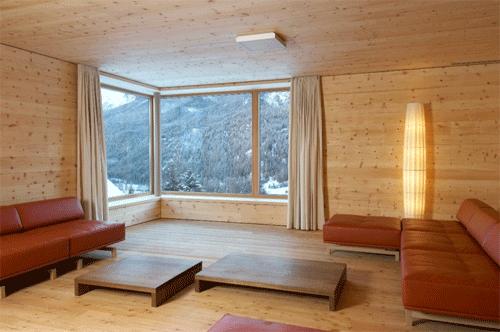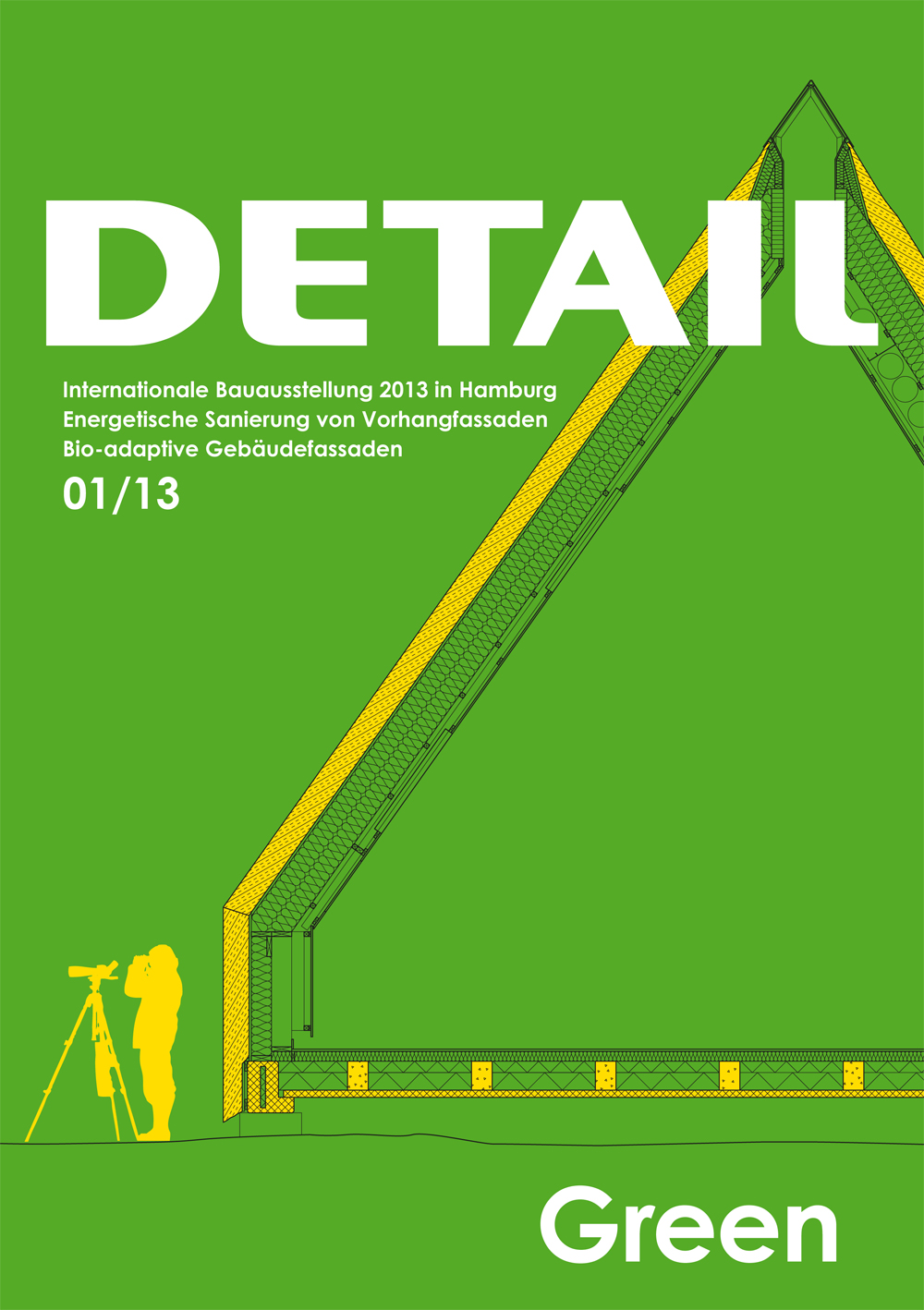Green 1/2013

Jugendherberge Scuol
The energy supply systems and the existing building stock in many European countries are facing an unprecedented historic change. Many people feel overwhelmed by new developments, particularly since the - supposed or real - downside of the energy turnaround is gradually becoming a subject of intense debate. With some exaggeration, the discussion goes something like this: “Energy-saving measures for buildings? They often cost more and achieve less than what is intended. Composite heat insulation systems? An aesthetic absurdity and the toxic waste of the future. Air-tight windows? Cause mildew in apartments. Photovoltaics and wind power? A blight on our cities and countryside.”
What was initially (sometimes understandable) uncertainty regarding new technologies is turning into aversion, obstructionism and a nostalgic wish to return to the past. People say that there was once a time when we managed to get along without such things as insulation, air-tight windows and unsightly solar panels. New technologies usually face scepticism in the beginning because they are not properly understood.
In their pure form, these sceptics are rare but there is a little of them in most of us. We keep a suspicious eye on every change of the landscape in our cities and the countryside, without reflecting on what consequences our failure to act would incur. Global warming of 3.5 to 4 degrees - a probability by the end of the century according to many climate researchers - will certainly leave its mark on all cities and the entire country. Building higher levees would simply not be enough to solve the the problems. The flora and fauna, the water supply in the ground, our methods of cultivation in agriculture, people’s daily routines, and much much more would be transformed.
The pending changes call for a sense of proportion, not blinkers. And even the term ‘a sense of proportion’ is all too frequently used as a pretext for postponing what is necessary, obfuscating the facts and pushing the responsibility to act onto others. We have all heard the seemingly strong arguments: “The craze for insulation will achieve nothing as long as the Chinese continue to build two new coal power stations a week.”
We need more creative involvement with the new, instead of an insistence on blocking change, we need ambitious plans for tomorrow (including all the unavoidable uncertainties associated with this) instead of a nostalgic wish to return to the past. Moreover, knowledge of the facts is always the best cure for uncertainty. With this in mind, we hope you enjoy reading this issue of DETAIL Green and find information that can be of use to you in your architectural endeavours.
Jakob Schoof
What was initially (sometimes understandable) uncertainty regarding new technologies is turning into aversion, obstructionism and a nostalgic wish to return to the past. People say that there was once a time when we managed to get along without such things as insulation, air-tight windows and unsightly solar panels. New technologies usually face scepticism in the beginning because they are not properly understood.
In their pure form, these sceptics are rare but there is a little of them in most of us. We keep a suspicious eye on every change of the landscape in our cities and the countryside, without reflecting on what consequences our failure to act would incur. Global warming of 3.5 to 4 degrees - a probability by the end of the century according to many climate researchers - will certainly leave its mark on all cities and the entire country. Building higher levees would simply not be enough to solve the the problems. The flora and fauna, the water supply in the ground, our methods of cultivation in agriculture, people’s daily routines, and much much more would be transformed.
The pending changes call for a sense of proportion, not blinkers. And even the term ‘a sense of proportion’ is all too frequently used as a pretext for postponing what is necessary, obfuscating the facts and pushing the responsibility to act onto others. We have all heard the seemingly strong arguments: “The craze for insulation will achieve nothing as long as the Chinese continue to build two new coal power stations a week.”
We need more creative involvement with the new, instead of an insistence on blocking change, we need ambitious plans for tomorrow (including all the unavoidable uncertainties associated with this) instead of a nostalgic wish to return to the past. Moreover, knowledge of the facts is always the best cure for uncertainty. With this in mind, we hope you enjoy reading this issue of DETAIL Green and find information that can be of use to you in your architectural endeavours.
Jakob Schoof

